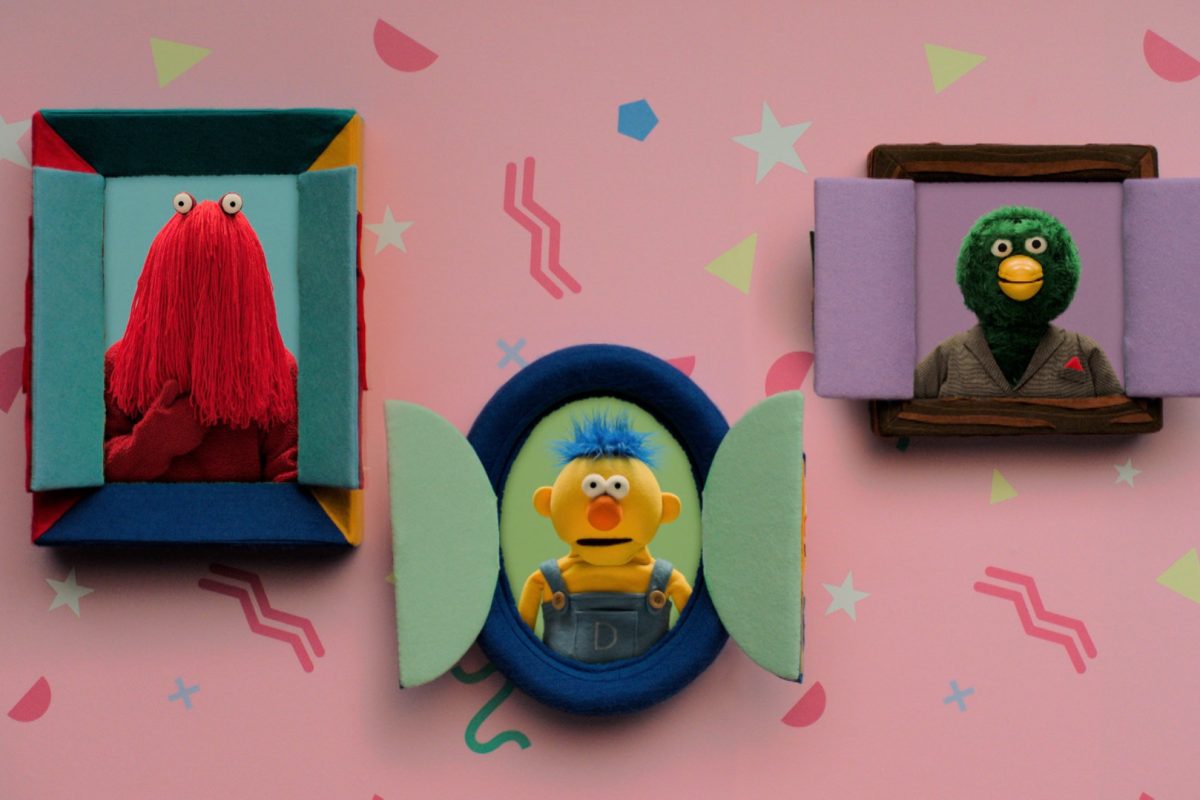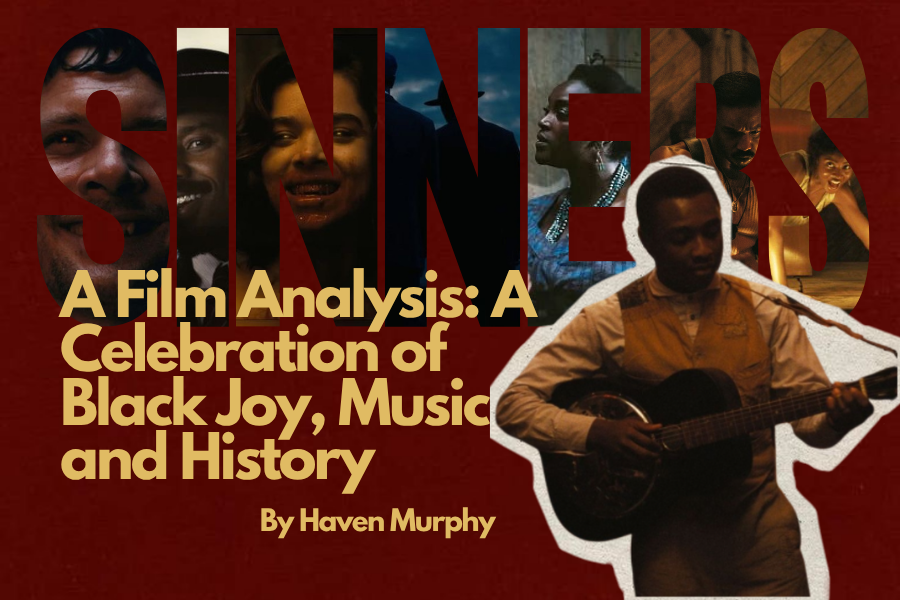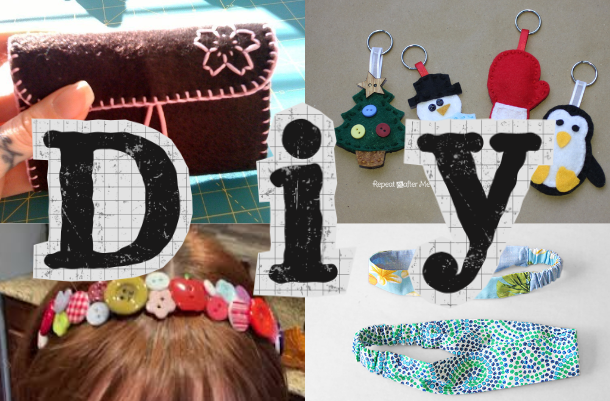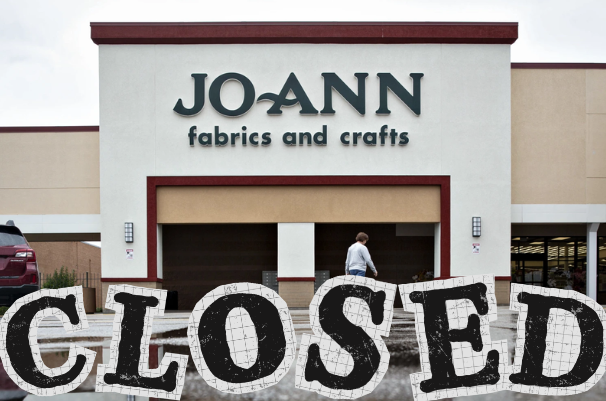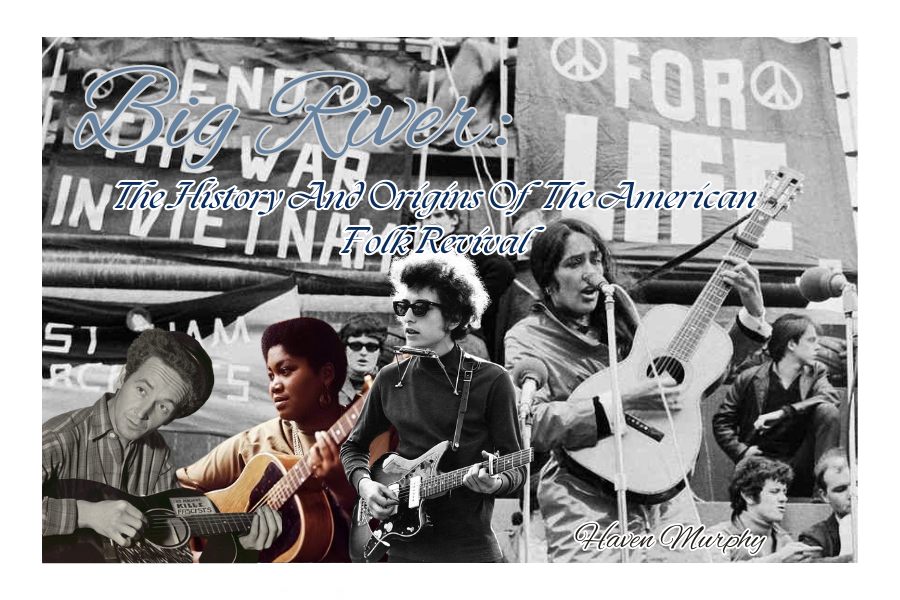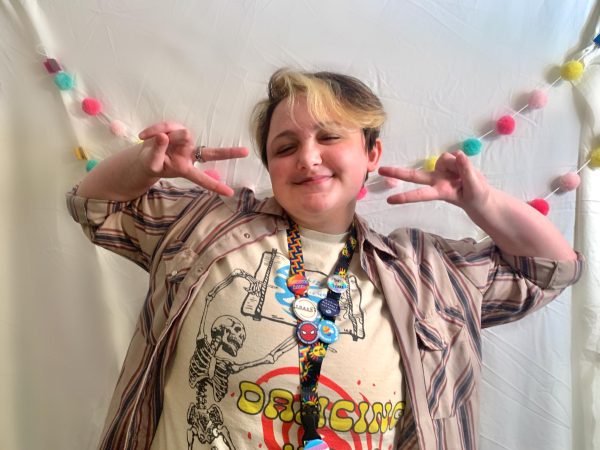While many may be unaware, hit internet horror series Don’t Hug Me I’m Scared has found a new home at the British streaming service Channel 4. As covered in my previous Don’t Hug Me I’m Scared article, the show follows three nameless characters (named Red Guy, Yellow Guy, and Duck by fans) as they are taught about different topics in the same style as a children’s TV show. A “teacher” will make itself known to the trio, and begin to teach the others about topics such as creativity, healthy eating habits, computers, and jobs. While elementary on the surface, the stories very quickly take a sharp turn for the absurd and disturbing.
The second installment of the series follows the same pattern, but now with higher production quality and a longer format. Episodes are usually filled with more dialog than music unlike the YouTube series.
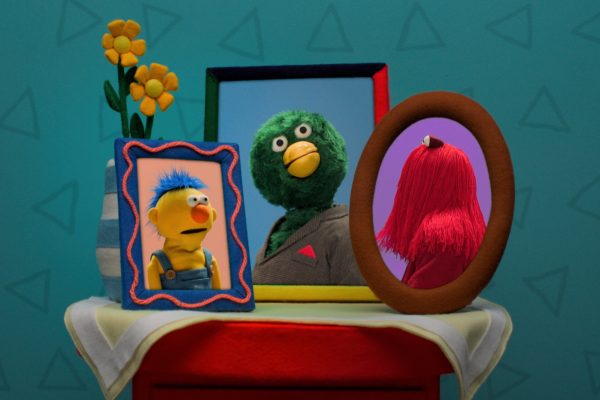
Once more, before turning to analysis, the most important part of this series is personal creativity. As stated by one of the creators, Becky Sloan, in response to viewer speculation, “We have read a lot of theories online about what it all means and they are all correct,” meaning there is no right or wrong way to interpret the story. Some may dive deep into hidden meanings and commentary, some may just think the series means nothing at all. All can be true at once! I say this not because I want to defend my own interpretation, but to point out the true core message of the show: the beauty of creativity. When analyzing the series, you yourself are being creative. The absurdist storytelling is a product of unimaginable creativity. I do not think that Don’t Hug Me I’m Scared has a specific story it is trying to convey, but rather that it is an outline for us to create one. Along with that, however, I do believe there are “side lessons” if you will. A character by the name of Leslie is one who I believe carries her own meaning. And even if there is no story, there are themes.
Initially, I was going to recap the entire second season, but I decided against it as each episode in the season is about 5 to 10 times longer than the epidsodes in the first season. Instead, I decided to pick the episode I felt best encapsulated the story being told, and that was the finale! This final episode is a hell of a ride and by far the most important in telling the overall story I have pieced together.

This episode is about “electricity,” taught by an electrical box that begins to educate the trio on the importance of electricity. For the most part, the song goes surprisingly well. There is nothing too jarring (that is by Don’t Hug Me I’m Scared standards). As the song rounds up, the electrical box opens its chest cavity to reveal that it is powered by batteries, meaning it does not need to be plugged in.
But oddly enough, Yellow says he has batteries too. When he opens his “chest cavity” his batteries are far overdue on a switch, having been rusted, oozing battery acid, and generally deteriorated.
The electric box immediately asserts, “You need to put fresh ones in every now and then!”
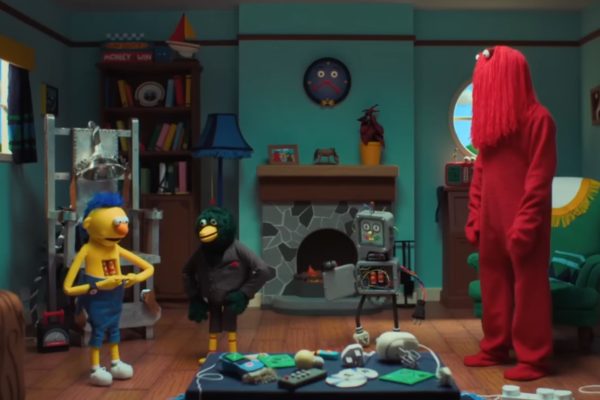
So, on a whim, Duck switches their batteries, much to the electrical box’s dismay. Yellow instantaneously changes with the new batteries and is now beyond intelligent and more distinguished. The other two remark about how he has “gone all wrong” because he is not the same.
Yellow then goes upstairs on his own and navigates three floors.

The first floor is Red and Duck but bigger and with walls covered in complex math. Their puppets are seemingly costumed and far more detailed. They converse about how they are big and far more superior than Yellow. These characters, while appearing wiser, more advanced, and larger than life, are still at their cores very similar to Red and Duck before, but now their egos are heavily inflated.

The next floor is the two as futuristic almost ethereal beings. Think abstract, like the form of a biblically accurate angel. The pair has an “experiment” who is this blob of… well I’m not quite sure. However, the important part is that this blob is alive! It makes noises, it feels fear, and it is definitely afraid of Duck and Red.
Seeing this clearly sentient being, Duck walks up and begins to shock the creature.
Of course, it screams.
Yellow asks what they are trying to learn from their so-called “experiment” and, after debating over it, Red says it is to see if the blob likes being shocked. Yellow points out the obvious: it doesn’t seem like it does. Duck, however, remarks, “This is as good as it gets!”
Yellow leaves, disturbed, and goes to the top level.

In the center of the room, there is an older woman playing a piano with a large handle on it. At the beginning of the episode we actually see her cranking the handle for the episode to start. As Yellow stares, the woman says, “No matter how we twist and turn, we’re still dancing in chains.”
When Yellow asks who the woman is, immediately the sweet melody she was playing dissipates into a single note playing, a deep sense of foreboding coating the scene. She slowly turns her head to look at him, answering, “My name is Leslie.” The thing about how she says this is that it is not rude, but it is not exactly friendly either. Something is wrong.
She tells Yellow that he is one of her “favorites,” assumedly out of the cast. Around the room are framed items from previous episodes.
On top of the piano, sits a detailed replica of the house the three reside in and two figures of Red and Duck sitting on the floor in the dark, where they have been for the entire episode. Leslie has Yellow help her tidy up the model. As Yellow places the figure for Duck, the head of it topples off. He apologizes but Leslie brushes him off, opening a drawer to reveal numerous extra Duck models saying, “Don’t worry! I always make sure I have plenty of backups!”
Leslie hands him a book, telling him he should get going. When Yellow asks why he cannot stay there, Leslie tells him he doesn’t belong “up here” and that he must want to show his friends the book!”
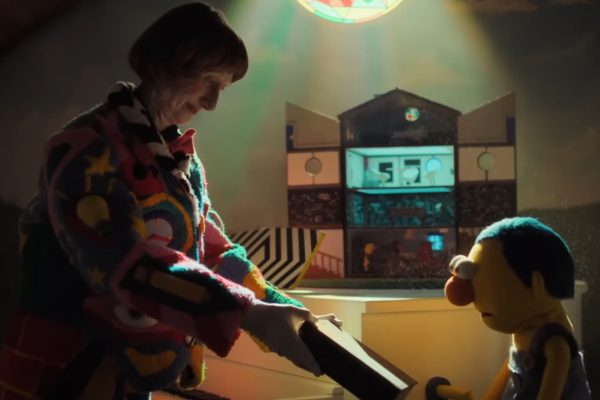
Yellow returns downstairs, Red and Duck immediately taking the batteries from his chest and switching them with those from the electricity teacher, turning Yellow back into his dopey self.
Forgetting all that he has seen, Yellow concludes that the book he was given, one that likely contained the answers to all of the smart Yellow’s questions, is of no use. So logically, he runs the book through the shredder, ripping it into pieces.

I hope you now see why I have chosen to use this episode as my focus for the season. It is a lot to unpack, and for good reason.
The whole DHMIS story in the old episodes has a theme of exploration. Yellow is a young child actor, likely forced by his father into the profession. Red is newly introduced at a later age of his own volition, looking to pursue his own personal creative aspirations. Duck is naturally the seasoned actor of the bunch, someone who has been doing this work so long that nothing phases him.
In this scenario, the actors have no control over what they do. Yellow does as he is told because he is impressionable. Red is frequently thrown off by happenings in the episodes, but he slowly begins to catch onto the fact that he has no say in his own creative work. Duck has been there, done that. He is so used to everything it does not phase him for even a moment. The only times he diverts from this is when he believes he is entitled to better conditions and treatment than everyone else. In an episode about jobs, Duck is in a factory. In the episode, Duck frequently demonstrates how he feels he is above other people, in this case specifically factory workers, even calling them freaks. As a seasoned actor, he has learned how to leverage the industry to appease him. He gives them what they want, he gets what he wants.
With that established, let us move to analyzing the plot points. Yellow getting his batteries replaced and becoming smarter is a representation of a young, manipulated actor becoming aware of what is happening to them. Yellow goes through the levels of the creation industry.
The first floor, or the people above Yellow, are the people who make the show. Writers, directors, those kinds of people. They think that they are smarter and bigger than Yellow. They have more control over the actors and they call the shots.
At least they think they do.
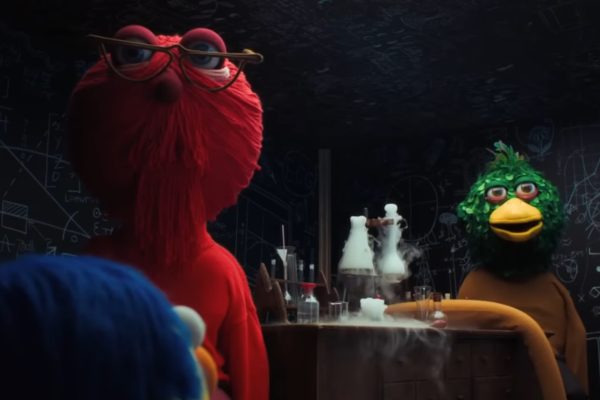
The second level is the people in charge. They are the ones greenlighting shows, choosing budgets, and generally controlling the “business side” of the work. They are also the ones doing horrible things to the actors. They are the ones who decide how much the actors make, who gets fired, who gets hired, and so on and so forth. Maybe they are not explicitly reaching out and playing a game of chess, but they are the ones who bought the board, bought the pieces, and told everyone how to play the game.
The highest level is the studio itself. The Man. The CEO. The person or people who represent the studio as a whole.
They puppet everyone around but they do not care about wellbeing, just profit. As long as some writer’s creation keeps getting cranked out they do not care how others feel. They earn money off of things that they never did and projects they never even touched. Despite contributing the least, they will inevitably make the most money.
In the segment with the third level, Yellow puts down Duck’s figurine and his head falls off. Leslie tells him not to worry and that she has a replacement. This is to say that, no matter what, in the eyes of those whom you rely on, you can be replaced by someone else, and they are completely fine with replacing you as long as they continue to turn a profit.
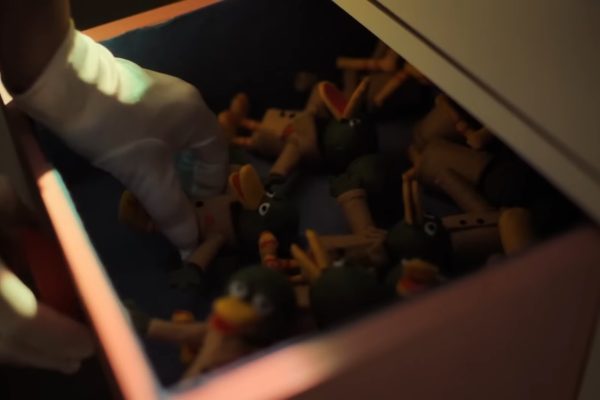
The most important part here is the first two levels having Red and Duck as the people in charge. Now let us go to the side story I have omitted until now: the home level where Duck and Red are left alone with the lights off. In the room where Red and Duck are, the power is obviously out. All around them, in the places with light, are disfigured versions of their past “teachers.”
Notice how Red is now used to things being directed for him. Those in charge of the show have taken control of him, and that’s his new normal. It is not that he sees anything wrong with it, but it is just that it is his new reality. He can either get in or get out. We can assume Duck is the same. The two are adults and entertainment all they’ve ever done. They talk about how they hate being left in the dark. While said literally as all the lights in their home are out, it is meant figuratively. Even if it is their new normal to not be told their direction in life, they do not exactly like it. However, they also know they cannot do anything about it. The actors are controlled by those with more authority, not their own volition. The levels beyond show these two moving up in the industries ranks. They go from clueless actors to creators. Going off of how their old creators treated them, they treat people the same.
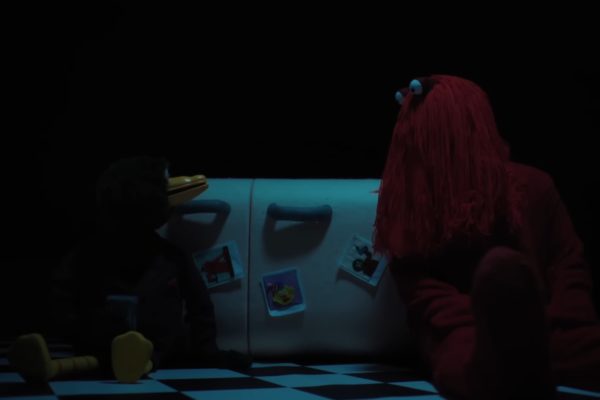
The same goes for the second level. Red and Duck see this actor (blob = actor) and see it as an experiment, not a person. They can hurt it all they want because of this detachment from their humanity. The person is an object that the two use to get their work done rather than simply a person. Those in power may not be hurting them on purpose, in aware of the consequences of their actions, but the main point is that they do not know any other way. The cycle is never-ending.
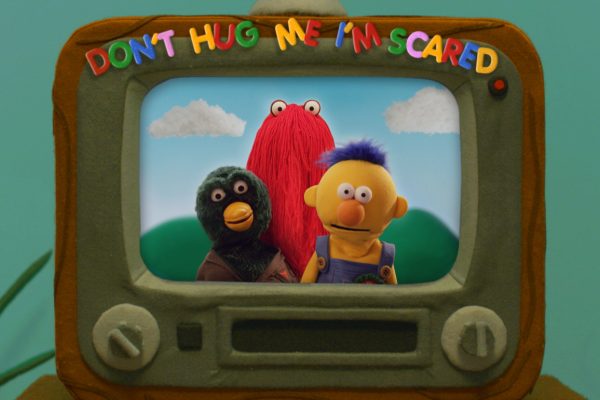
Someone will come in as a young creator with a dream. Those around them pretend to be give them value, much like love-bombing. Then the same who showed them love, slowly ease the vulnerable actor into the harsh world of acting and mistreatment. However, the actors do not know anything else so they go along with it, even if they do not like being mistreated. They assume this maltreatment is universal, which it very often is. It is made normal so no one tries to disobey. Finally they get to actually be creators. They do not know how to create beyond what they have seen so they become the people that mistreated them. The same thing will happen to Yellow. That’s why Leslie was expecting him. He is a young impressionable actor who does not know any better. He will fall into the cycle eventually; it is inevitable. Red and Duck have already fallen for it, so it is just a waiting game.
It is this pattern of an unknowing victim being pulled in, being told what to do, and with no other reference following along without any questions that stifles one’s creativity. Those in charge such as CEOs or media advisors prioritize financial gain over creativity, turning an art form into the office jobs they want to escape.
Don’t Hug Me I’m Scared is a series about the exploration of creatives and the cyclical nature of the abuse of actors. This series wants you to be creative, but this time for yourself rather than profit.


